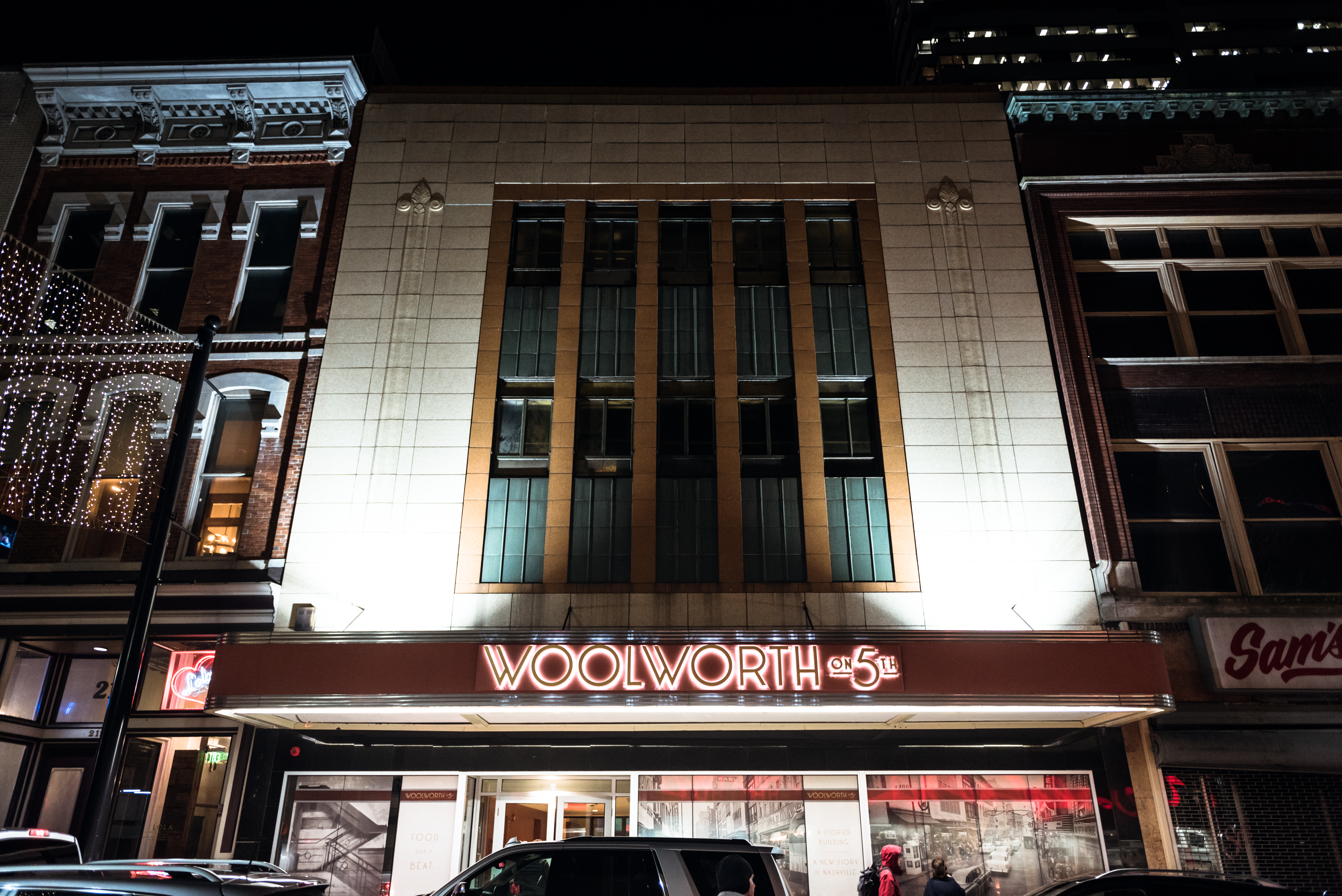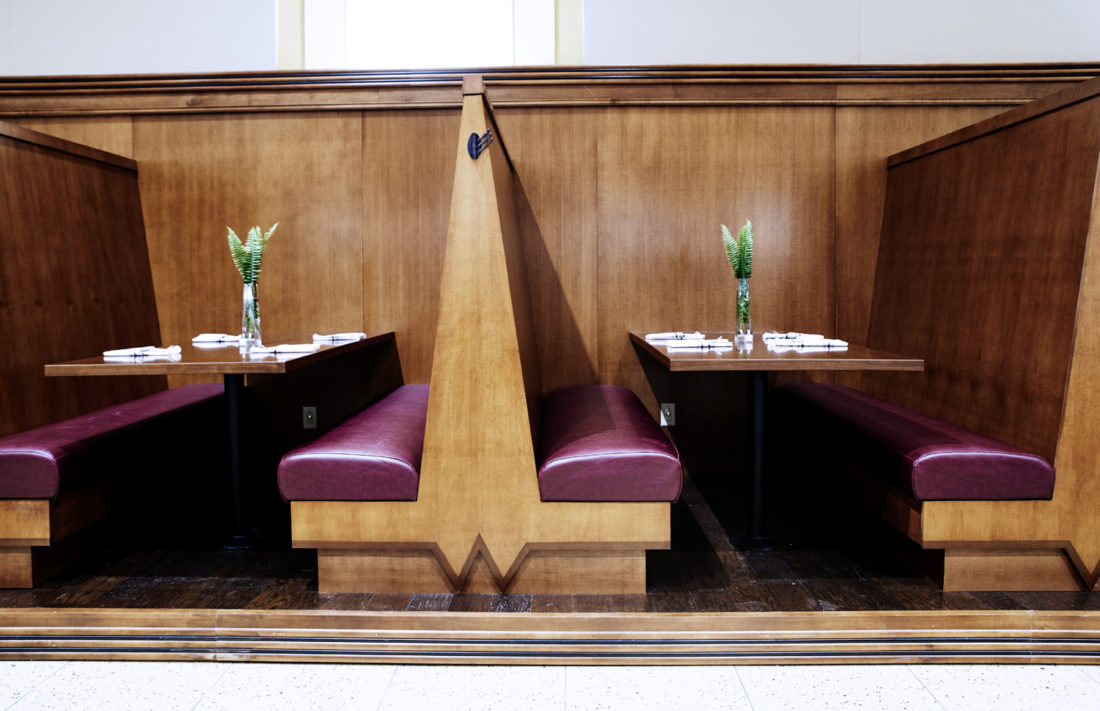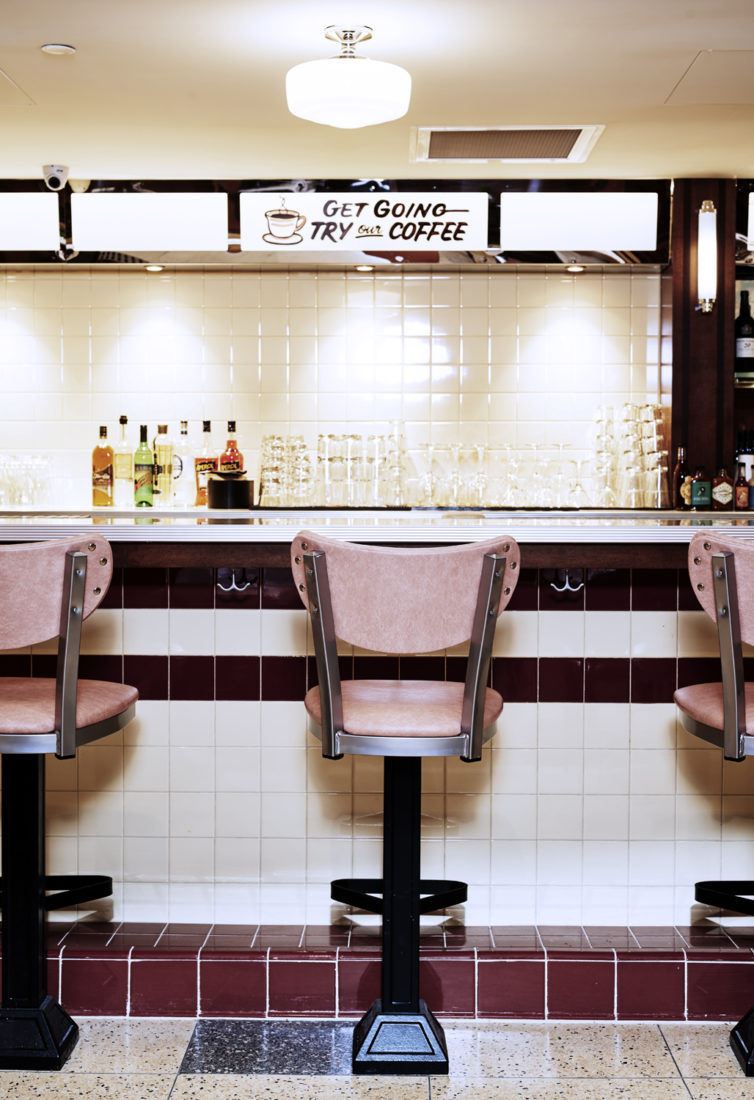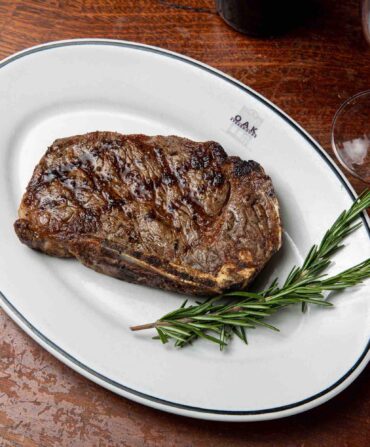Nearly sixty years after Congressman John Lewis and others faced humiliation and arrest during the Nashville sit-ins of the civil rights era, the downtown Woolworth lunch counter where they peacefully protested reopened its doors this week, welcoming all.
Nashville native Tom Morales took on the historic site’s newest act, which features a restaurant and live music venue for genres like R&B and jazz, often underrepresented in Nashville’s honky-tonk scene. The new Woolworth on 5th includes a renovated lunch counter in its original location as well as additional seating in the dining room and second-level lounge.

Nathan Zucker
“We didn’t want to change anything other than to make it work and allow it to survive,” Morales says. But he adds that he didn’t want to make it a museum either, rather a place for all to share a bite, sing, and dance. “What they sat in for, we wanted to stand up to. So it’s a welcome table,” he says. “We want to honor what they did.”
As a youngster, Morales remembers visiting Woolworth with his nine brothers and sisters. After leaving Nashville to work in the restaurant business along the Gulf Coast, he returned in 1986 and started TomKats Hospitality, a company that has catered about 2,500 movies. He began opening restaurants, too, including the preservation of Acme Feed & Seed and the legendary Loveless Café. He started work on the 1930s-era Woolworth building in early 2017. Although it had done duty most recently as a Dollar General, the bones remained.

Photo: Danielle Atkins
Booths on the main floor at Woolworth on 5th.
Going beyond its diner days, Woolworth on 5th aims to explore the roots of Southern cuisine. The menu includes a sweet potato, kale, and black-eyed pea soup from Soul Food Love, a book by local authors Alice Randall and Caroline Randall Williams, a writer in residence at Fisk University and investor in the project.
Williams says Morales was conscious to include those in the community with stakes in the space, and find a way to positively and honestly honor the hard part of the Woolworth story. For Williams, it’s personal; her grandfather provided legal counsel to Nashville’s protestors during the 1960s.
“Tom always does a good job with taking historic spaces into the now,” she says. “There’s a lot of room to continue to figure out what the space can do. It’s dynamic, fun, and unprecedented.”








